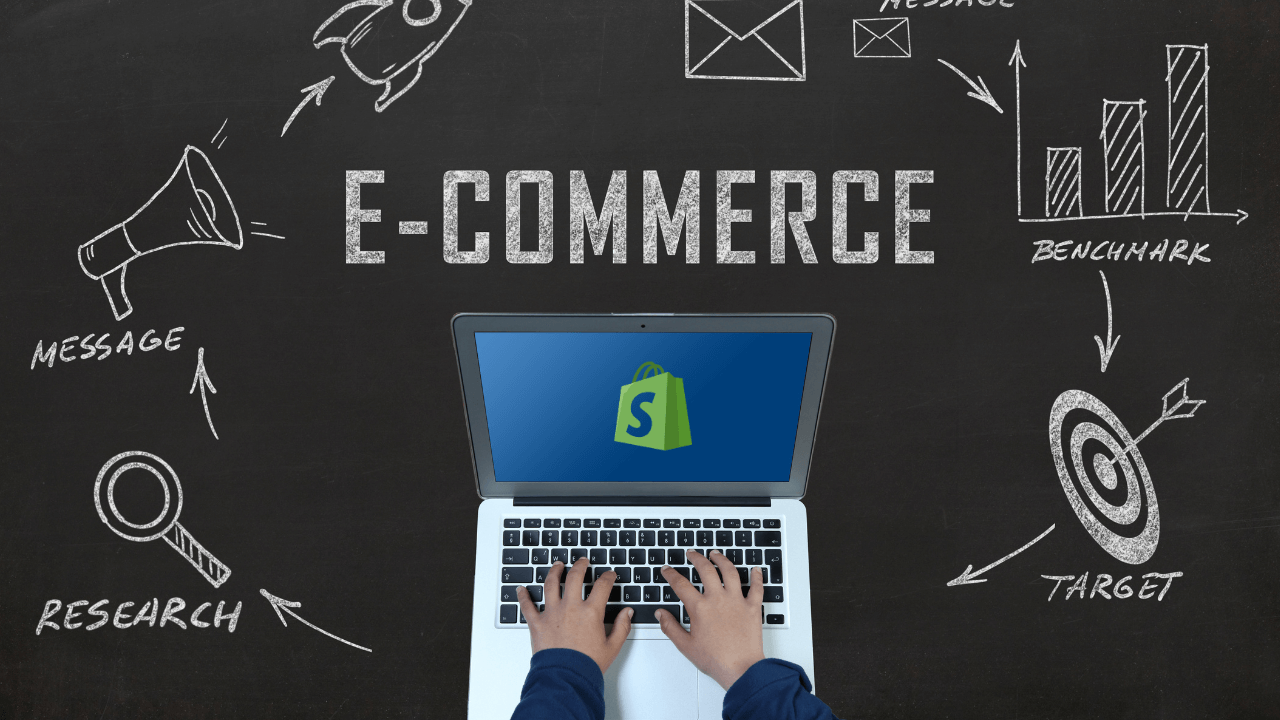Language:
How to Start Your Ecommerce Business on Shopify

According to data published in a Forbes article, the global e-commerce market is expected to be worth $6.3 trillion by the end of 2024 and reach $8 trillion by 2027.
This data gives us a glimpse of the tremendous growth of the e-commerce industry, fueled by numerous factors. It also tells us that the time to start your ecommerce business is NOW!
However, starting your ecommerce business and running it successfully is challenging. One set of challenges entrepreneurs should anticipate is the problems that can arise from not registering their ecommerce LLC.
Not just saving your assets, having your ecommerce LLC also provides the credibility required to run a winning ecommerce business.
In this article, we will discuss everything you should know to set up your Shopify store.
We will also give you practical tips, roadblocks to watch out for, and winning strategies for making your Shopify store successful.
With doola, entrepreneurs worldwide register their U.S. LLCs with us and safeguard their hard-earned money with our exceptional business management solutions.
Sign up with us today and embark on an entrepreneurial journey like no other.
Why Choose Shopify for Your eCommerce Business

User-Friendly Interface
One of Shopify’s standout features is its user-friendly interface. Whether you’re an experienced developer or a beginner, Shopify’s intuitive design makes it easy to navigate and use.
The platform’s drag-and-drop functionality allows users to customize their stores without coding knowledge.
Shopify provides a variety of themes and templates that are easily customizable to fit your brand’s unique look and feel. This ease of use ensures you can focus more on your business and less on technical challenges.
Shopify’s dashboard offers clear insights and analytics, helping you monitor your sales, customers, and inventory in real-time.
Versatile Payment Options
Shopify stands out for its versatile payment options, accommodating many customer preferences.
The platform supports over 100 payment gateways, including significant providers like PayPal, Stripe, Square and Mercury.
Shopify Payments, the platform’s built-in payment processor, allows you to accept credit card payments directly on your site without needing third-party integrations.
Shopify’s secure payment processing complies with PCI standards, protecting your customer’s data.
Scalability and Growth
Shopify is designed to support businesses at every stage of growth. Shopify’s scalable infrastructure can seamlessly handle increasing traffic and sales volumes, whether you’re just starting or managing a large enterprise.
The platform offers various pricing plans, allowing you to upgrade as your business expands.
Shopify’s robust app ecosystem also provides tools and integrations that grow with your business needs, such as advanced analytics, marketing automation, and inventory management solutions.
This flexibility ensures that your eCommerce platform won’t hold you back as your business scales. With multi-currency and multi-language support, Shopify’s global reach empowers you to tap into international markets effortlessly.
Zeroing in on the Right Product
Market Research Techniques
Effective market research is vital for identifying the right product to sell. Start by analyzing current trends using tools like Google Trends and social media analytics to see what products are gaining popularity.
Additionally, explore online marketplaces like Amazon and eBay to identify top-selling items and emerging niches.
Customer reviews and feedback on these platforms can provide insights into consumer preferences and pain points.
Another valuable technique is conducting surveys and focus groups to gather direct feedback from potential customers.
Competitive analysis is essential; study your competitors to understand their product offerings, pricing strategies, and customer engagement.
Analyzing Competitors
Analyzing your competitors is crucial in zeroing in on the right product for your eCommerce business. Begin by identifying who your main competitors are within your chosen niche.
Examine their websites, product listings, and customer reviews to understand their strengths and weaknesses. Tools like SEMrush and Ahrefs can help you gain insights into their online visibility and keyword strategies.
Look at their pricing models, promotional tactics, and customer service approaches to identify areas where you can differentiate your business.
Pay attention to their social media presence to gauge how they engage with their audience and what content resonates well.
Understanding Your Audience
Understanding your audience is fundamental to choosing the right product and successfully marketing it. Start by creating detailed buyer personas that outline your ideal customer’s demographics, interests, and pain points.
Utilize analytics tools like Google Analytics and social media insights to gather data about your current or potential audience.
Surveys and interviews can provide direct feedback and deeper insights into consumers’ preferences and buying behaviours.
By understanding what motivates your audience, you can tailor your product features, pricing, and marketing messages to meet their needs better.
Step-by-Step Guide to Creating a Shopify Website

Initial Setup and Customization
Starting your Shopify website begins with a straightforward setup and customization process.
First, sign up for a Shopify account and choose a suitable pricing plan.
Once your account is created, you’ll be guided through a setup wizard where you can enter basic information about your store, such as its name, address, and primary selling products.
After completing the initial setup, it’s time to customize your store. Shopify offers a wide range of free and paid themes that you can use to give your website a professional look.
Use the drag-and-drop editor to rearrange elements and add your brandings, such as logos and colour schemes. Customize your homepage, product pages, and other sections to reflect your unique style and vision.
Buying a Domain
Securing a custom domain name is critical in establishing your Shopify store’s online identity. Services like GoDaddy make this process straightforward and efficient.
Once you’ve selected your desired domain, follow the prompts to purchase it. GoDaddy offers various pricing options and extensions, so you can choose one that fits your budget and needs.
After purchasing your domain, log in to your Shopify admin panel and navigate to the “Domains” section.
You can connect your newly acquired domain to your Shopify store by following Shopify’s step-by-step integration guide.
This connection ensures that when customers type your custom domain into their browser, they are directed to your Shopify site.
Adding Products and Setting Up Payment Gateways
Once your Shopify site is set up and customized, the next crucial step is adding products and setting up payment gateways.
Start by navigating to your Shopify admin panel’s “Products” section. Click “Add product” and fill in the details like product title, description, price, and images.
Be sure to provide high-quality photos and compelling descriptions to attract customers.
Additionally, you can categorize your products and add tags to make them easier to find.
Next, set up your payment gateways to enable transactions. Shopify supports multiple payment gateways, including Shopify Payments and third-party options like Stripe and Mercury.
To configure these, go to the “Settings” section and click “Payments.”
Follow the prompts to connect your preferred payment methods. Ensure that your payment settings comply with PCI standards to protect customer data.
Registering Your eCommerce Business as an LLC
Importance of LLC for Your Business
Forming a Limited Liability Company (LLC) for your eCommerce business is crucial for several reasons.
First and foremost, an LLC provides personal liability protection, meaning your assets are safeguarded if your company faces legal issues or debts.
This separation between personal and business liabilities offers peace of mind and financial security.
An LLC enhances your business’s credibility, making it more attractive to customers, suppliers, and potential investors.
The formal structure of an LLC also simplifies tax filing, as profits and losses can pass through to your income without facing corporate taxes.
Furthermore, an LLC offers flexibility in management and ownership, accommodating various business sizes and structures.
Legal and Tax Benefits
Registering your eCommerce business as an LLC offers numerous legal and tax benefits. Legally, an LLC provides liability protection, ensuring that your assets are shielded from business-related lawsuits and debts.
This separation creates a clear boundary between personal and business finances, minimizing risk. On the tax front, LLCs enjoy pass-through taxation, meaning the company is not taxed separately.
Instead, profits and losses are reported on your tax return, potentially lowering your overall tax burden. Also, LLCs can choose their tax classification, allowing you to opt for sole proprietorship, partnership, or corporation tax treatment based on what benefits you most. This flexibility can result in significant tax savings.
Furthermore, LLCs can often deduct business expenses like operational costs and health insurance premiums, reducing taxable income.
Steps to Register Your LLC:
Registering your LLC involves a series of straightforward steps:
- Choose a unique name for your business that complies with your state’s LLC naming rules.
- Appoint a registered agent who will handle legal documents on behalf of your LLC.
- File the Articles of Organization with your state’s LLC filing office, which typically involves filling out a form and paying a filing fee.
Afterwards, create an Operating Agreement that outlines your LLC’s ownership and management structure, even if your state does not require it. This document is crucial for preventing future disputes.
Once your LLC is approved, obtain an Employer Identification Number (EIN) from the IRS.
This number is necessary for tax purposes and opening a business bank account.
Finally, ensure you comply with additional state-specific requirements, such as business licenses or permits.
Seamlessly Set Up Your LLC with doola

With doola’s help, entrepreneurs seamlessly navigate the complex U.S. business environment, even without prior knowledge of the legal intricacies involved in establishing a company in the U.S.
When you sign up for doola Formation, we take care of the entire process, including filing the necessary paperwork, obtaining an Employer Identification Number (EIN), and ensuring compliance with state regulations, allowing entrepreneurs to focus on growing their businesses rather than getting bogged down in administrative tasks.
Moreover, Doola’s services extend beyond just company formation.
The platform provides ongoing support, including tax filing assistance, access to U.S. business banking, and consultation services.
With the doola Total Compiance bundle, we ensure that international entrepreneurs can operate their U.S. LLCs smoothly and fully comply with American laws.
With doola, starting and maintaining a U.S. LLC becomes a streamlined and stress-free experience, empowering global entrepreneurs to achieve their business goals in the world’s largest economy.
Sign up today to start your ecommerce business in the U.S.
FAQs
Why should I choose Shopify over other ecommerce platforms?
Shopify is ideal for its user-friendly interface, extensive customization options, versatile payment gateways, and scalability. It supports businesses at all growth stages, making setting up, managing, and expanding your online store easy.
What are the benefits of registering my ecommerce business as an LLC?
Registering your ecommerce business as an LLC provides personal liability protection, meaning your assets are safeguarded in case of business-related legal issues or debts.
Additionally, an LLC enhances your business’s credibility, offers tax advantages through pass-through taxation, and provides flexibility in management and ownership structures.
How does doola help set up a U.S. LLC for my ecommerce business?
Doola simplifies the U.S. LLC formation process by handling all the necessary paperwork, obtaining an EIN, and ensuring state regulation compliance.
They also offer ongoing support, including tax filing assistance and access to U.S. business banking, allowing you to focus on growing your business.
What steps do I need to take to create a Shopify store?
To create a Shopify store, sign up for a Shopify account and choose a pricing plan.
Customize your store using Shopify’s themes and templates, add products with detailed descriptions and images, set up payment gateways, and secure a custom domain name to establish your online identity.
What should I consider when choosing a product for my Shopify store?
Conduct thorough market research using tools like Google Trends and social media analytics to identify trending products. Analyze competitors to understand their offerings, pricing, and customer engagement.
Also, gather insights from customer reviews and direct feedback to ensure your product meets consumer needs and stands out in the market.



